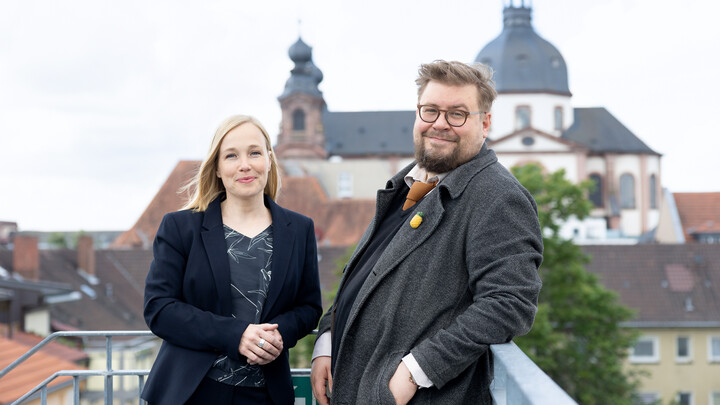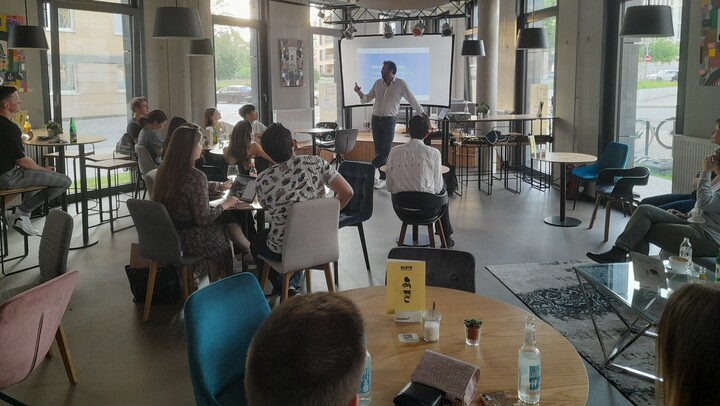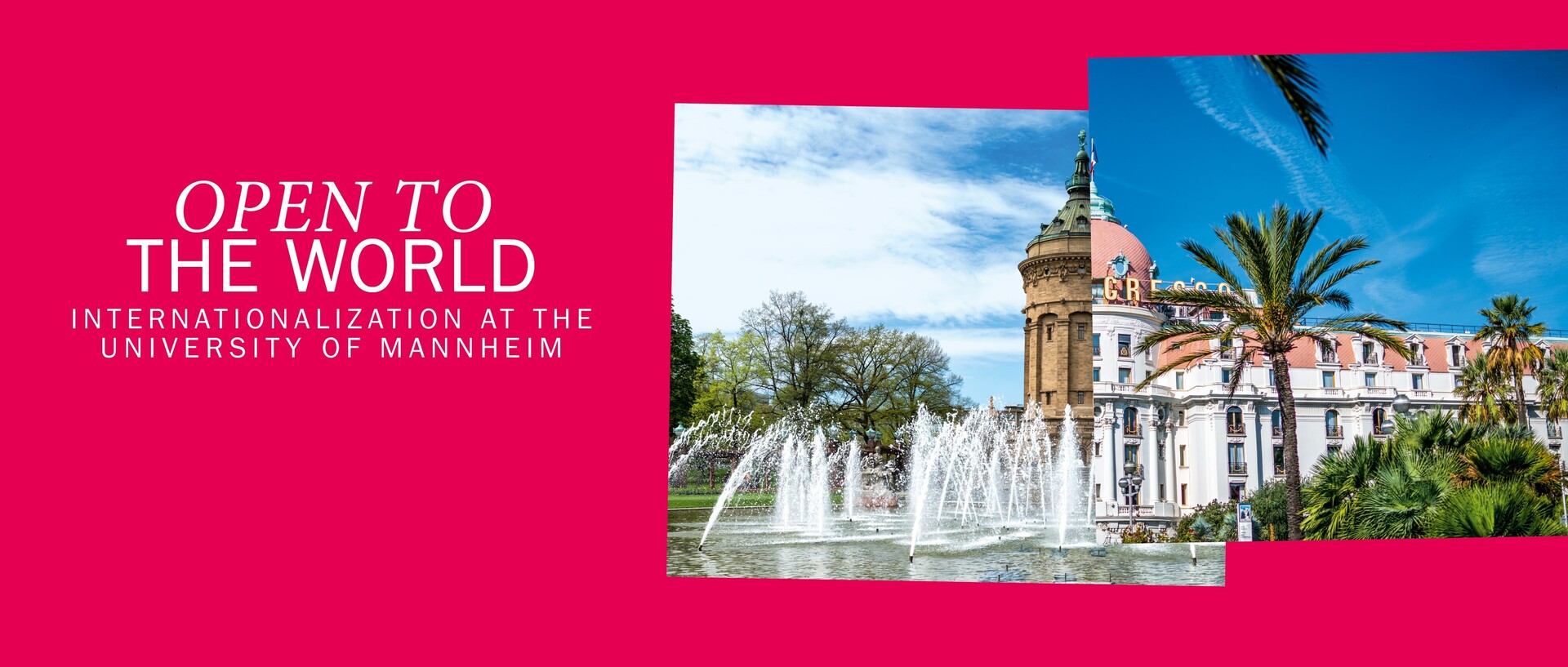Innovations at Intersections
Lifelong learning and the impact of academic research on professional practice are key concerns for the European university alliance ENGAGE.EU. The interdisciplinary research group MARCIE provides research-based professional development courses for the cultural and creative industries. The group was set up using DAAD funding obtained by Prof. Hiram Kümper (Department of History) and Julia Derkau (Center for Teacher Education and Educational Innovation, ZLBI). The Mannheim Center for Entrepreneurship and Innovation (MCEI) and the Teaching and Learning Center (ZLL) are also involved in the project.
FORUM: At the University of Mannheim, the name MARCIE often comes up in connection with ENGAGE.EU. What exactly is MARCIE?
Prof. Kümper: MARCIE stands for Mannheim Research Group in Culture, Innovation, and Entrepreneurship. So it’s a research group, but one of a special kind. It brings together research from highly diverse fields when that research shares a particular goal: namely, to feed its findings back into practical training and professional development. Our focus is on the cultural and creative industries. We see that as a great fit for the metropolitan region and especially for Mannheim itself, where the sector is exceptionally strong compared with Germany overall. And the University of Mannheim is a great partner for this work, thanks to its strong entrepreneurship teaching and educational research, and the School of Humanities’ close links with the cultural sector.
FORUM: What’s special about MARCIE’s professional development courses?
Derkau: There’s already a lot of CPD out there for the cultural and creative sector. Two things make MARCIE’s courses stand out. Firstly, by contrast with most other courses on the market, they’re based on the methods and theories of entrepreneurship education rather than cultural management. That makes our courses appealing both to people already working in industry and to students in the later stages of their degrees who have an idea for a new business or want to go freelance. Secondly, MARCIE’s courses are firmly research-based. The learning content itself is rooted in research, and we also do research into the courses’ target groups and their specific needs. We are a research group, after all. And cultural entrepreneurship isn’t the same as other kinds of entrepreneurship. Cultural institutions need different approaches to ‘intrapreneurship’ and change management than commercial businesses. Moreover, the cultural and creative industries have very different stakeholders, need very different platforms, and work in different (e.g., social or civic) networks. We’ve gained a lot of experience in campus–community partnerships in the past few years. And it’s great to be able to systematize what we’ve learned and share it with others.
FORUM: Who are the courses aimed at?
Prof. Kümper: A few years ago, the American economist Frans Johansson persuasively argued in an internationally bestselling book that innovations often emerge out of intersections between culture, academic research, and money. The MARCIE courses aim to give inquisitive individuals the professional skills and knowledge they need to navigate these intersections themselves. These individuals could be students, they could be professionals working in-house at industry institutions, or they could be freelancers or company founders. So as well as the intersections among different fields and disciplines, you also get intersections among different people from highly diverse backgrounds. And it’s also an excellent fit for the aims of ENGAGE.EU, which likewise takes an intersectional approach in order to unlock massive potential for innovation.
Interview: Jule Leger / October 2022



